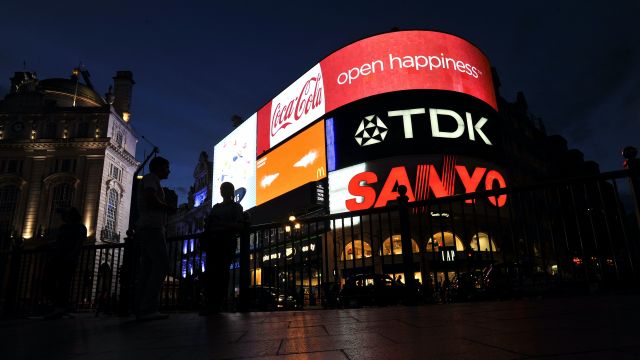Researchers led by the Barcelona Institute for Global Health (ISGlobal) have found exposure to high levels of blue light spectrum to be associated with “a 60% increased risk” of bowel cancer.
However, they said no association was found with other types of artificial light, such as visual light that covers all spectra.
Dr Manolis Kogevinas, ISGlobal researcher and coordinator of the study published in Epidemiology, said that research on the potential effects of light exposure on cancer “is still in its infancy” so “more work is needed to provide sound, evidence-based recommendations to prevent adverse outcomes”.
He said: “We found an association only with blue light spectrum – this corresponds to the strong white light from hard LEDs and not with visual light.”
The team had previously found that those exposed to high levels of outdoor blue light at night had double the risk of prostate cancer and 1.5 times higher risk of breast cancer, compared to those with less exposure to blue light.
We found an association only with blue light spectrum - this corresponds to the strong white light from hard LEDs and not with visual light
For their current study, the researchers looked at medical and epidemiological data of nearly 2,000 adults in Barcelona and Madrid, 660 of whom had bowel cancer.
Individuals with a history of working night shifts were excluded, as according to Dr Kogevinas, night shift work and disruption to the body’s 24-hour cycle, known as the circadian rhythm, have previously been associated with bowel cancer risk.
The researchers used images taken by astronauts on the International Space Station to calculate the intensity of artificial light at night in the two cities.
Results showed that participants with the highest exposures to blue light had a 60% higher risk of developing bowel cancer than the less-exposed population.
It is thought that artificial light, particularly in the blue spectrum, can decrease the body’s production and secretion of the hormone melatonin, which plays a key role in regulating the circadian rhythm.
Although its role in bowel cancer is unclear, the researchers say studies have shown that disruption of circadian genes may contribute to the initiation and progression of bowel cancer.
While these new findings are interesting, the research isn't able to take into consideration all of the other behavioural and lifestyle factors that might increase a person's risk of developing bowel cancer. We cannot tell from this study if artificial light directly led to people developing the disease
The study did not focus on indoor artificial light or devices such as tablets and phones which emit blue light, the researchers said.
But Dr Kogevinas suggests technology devices should be assessed because “the general population and also young ages have extensive exposure to blue light through tables and smartphones”.
In addition, the researchers said individual behaviours such as the use of rolling shutters – common in Spain and other Mediterranean countries – were not taken into account as part of the study.
Commenting on the research, Genevieve Edwards, chief executive of Bowel Cancer UK, who was not involved in the study, said: “There has been previous research linking exposure to artificial light at night to other cancers, and while these new findings are interesting, the research isn’t able to take into consideration all of the other behavioural and lifestyle factors that might increase a person’s risk of developing bowel cancer.
“We cannot tell from this study if artificial light directly led to people developing the disease.
“As the researchers acknowledge themselves, this area of work is in its infancy and we’d welcome further studies.”







